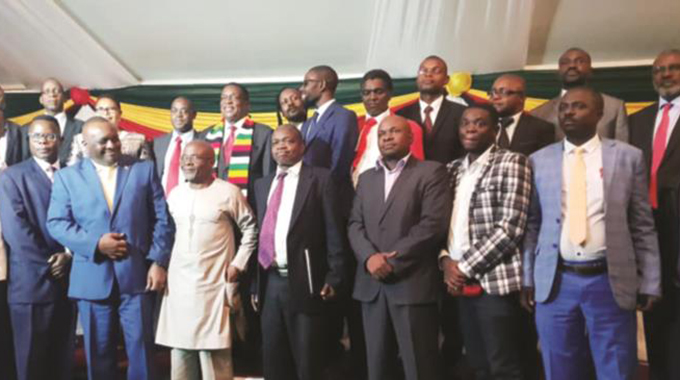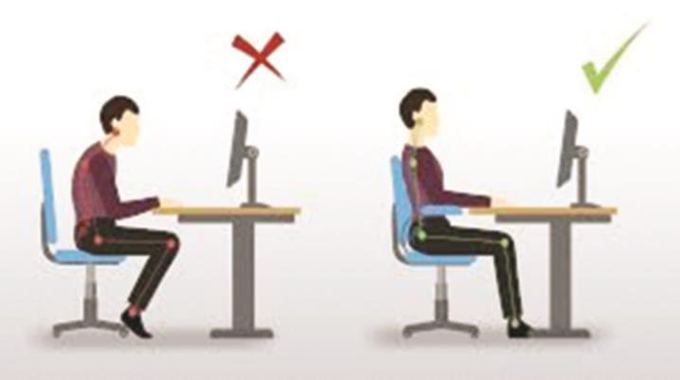Let’s build our nation together

Lawson Mabhena News and Politics Editor
The naming of this country — Zimbabwe — is arguably the first ever and most important nation building project embarked on after independence.
Prior to Zimbabwe, the country had been known by three names.
The first name in particular, Southern Rhodesia, is probably one of the worst names any country could ever have.
Firstly, to be “Southern” denotes being conjoined to a “Northern”. No offence to our Siamese twin, Zambia, but an individual identity is the foundation of national pride and sense of belonging.
The second problem with Southern Rhodesia is Rhodesia. Cecil John Rhodes is undoubtedly a remarkable hero to his kinsmen, but even they would not name their country after him. The United Kingdom is not the most creative of names, but it is simple and neutral.
To Zimbabweans, Rhodes will never be a hero. He is just the greatest thief to have ever walked the face of the earth. If his grave at the Matobo National Park in Matabeleland South didn’t attract so many tourists, his remains would have long been “DHL-ed” to his homeland.
From 1965, the country became known as Rhodesia and Zimbabwe-Rhodesia after the Internal Settlement of 1978.
In 1980, the Place Names Commission was set up to advise the Government on how to dispose of the vestiges of the colonial past and a few places that had name changes include Wankie, now Hwange, Shabanie (Zvishavane) and Gwelo (Gweru).
Isn’t it amazing how far a simple change of name can go?
Even talking. Simply talking can also go very far.
That is why last week’s pronouncement by the Church that it wants to be included in the talks being held under the auspices of the Political Actors Dialogue (POLAD), is sweet music to the ears of nation builders.
More so, the comment that dialogue should be inclusive and not about the outcome of the 2018 elections, is a wakeup call to those that are still stuck in election mode.
What does it mean to be a Zimbabwean? Should all Zimbabweans be part of the national dialogue or is it about the two top candidates during the last presidential election? Those have been the questions.
Nation building is about constructing or structuring a national identity using the power of the State. Like any other State that had just emerged from war and had recently become independent, nation building was essential in Zimbabwe to assist citizens in finding their identity.
The National Flag and Anthem are also some of the important projects that have brought a sense of belonging.
The flag is the pride of all Zimbabweans regardless of political affiliation. It has been hoisted with pride by pro-Government Zimbabweans, who wear it as a scarf and has been used by activists under the #ThisFlag movement.
The National Anthem is loved by all because Zimbabweans had to vote for it. They were given a choice and they chose the current anthem.
While nation building projects have been many, finding common ground has continued to be a struggle as Zimbabwe remains a polarised nation. Racial, tribal and political differences continue to undermine the nation building project.
However, nation building is a process and not an event.
President Mnangagwa has gone a long way in trying to nation-build. In March 2019, more than 60 civil society organisations operating in Bulawayo, Matabeleland North and Matabeleland South under the auspices of the Matabeleland Collective, met President Mnangagwa at State House in Bulawayo, to discuss issues affecting citizens, non-governmental organisations, community-based organisations and civic activists in the three provinces.
The engagement was anchored on four key areas of focus which are healing, devolution of power, social inclusion and compensatory development. Issues discussed include the decriminalisation of Gukurahundi, reburials, devolution, prioritisation of Zambezi Water Project and representation of women.
This was the first time in Zimbabwe that a Head of State met citizens of the three provinces and spoke openly on such serious issues. The National Peace and Reconciliation Commission has also been visiting various parts of the country as part of a national healing process.
This has yielded positive results as a few Gukurahundi victims have been reburied. Ukuthula Trust, which was responsible for the successful exhumation and reburial of a Gukurahundi victim in Tsholotsho, announced that it was ready to assist families rebury their loved ones as part of efforts to find closure and ensure national healing.
This process of national healing on Gukurahundi, which comes after President Mnangagwa’s bold meeting with civic society in Bulawayo, has been hailed by many who lost their loved ones as they can finally find closure. This is the first time that Government has opened up and even allowed citizens to speak freely on the subject.
In May, President Mnangagwa launched POLAD together with 17 political parties who participated in the presidential elections during last year’s harmonised elections. The President could have gone about his business after winning the elections, but he didn’t; he put national interest first.
And now churches have thrown their weight behind the political dialogue. The Zimbabwe Council of Churches (ZCC) is made up of 26 churches with full membership, including the Evangelical Lutheran Church in Zimbabwe (ELCZ), 10 associate church bodies, among them the Roman Catholic Church, and three observer church organisations.
Said ZCC secretary-general Reverend Dr Kenneth Mtata in an interview with The Herald: “Dialogue should be comprehensive and broad-based participation with the inclusion of all political parties, chiefs, churches and even civil society groups.
“The issue of dialogue is not about the outcome of the previous election . . . as churches, we need transformation, which ushers peace, justice, unity and prosperity among the people.”
Dr Mtata’s remarks came as MDC-Alliance leader Mr Nelson Chamisa called for the political parties dialogue to be limited to his party and ZANU-PF.
Mr Chamisa is on a whirlwind tour, lobbying SADC member states to convince President Mnangagwa to engage him outside the POLAD framework.
Nation building is not about two men sitting over a cup of tea or a calabash of traditional beer. The future of 14 million Zimbabweans is at stake.
There is absolutely nothing wrong with Mr Chamisa engaging President Mnangagwa. It is actually imperative that they meet as the leaders of the two largest political parties.
The nation building project is, however, bigger than Chamisa, bigger than President Mnangagwa. It is also past the July 2018 elections. In fact, the nation building project has never been stopped by disputed elections. Not in 1980, not in 2008 and certainly not in 2018.
Let us not go back to the days when our country was named after one man. Zimbabwe is for all of us, let’s nation-build together.










Comments